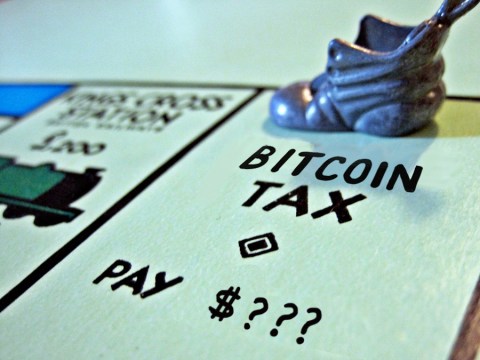
A man who can only be identified by his anonymous digital wallet address has renewed concerns that many regulators have over a new breed of cryptocurrency millionaires. How do they tax, and monitor illegal activities, of masked cryptocurrency users?
An Instagram post that sparked these concerns again read:
I get many private messages asking how much ether I have. […] One of the cool things about Ethereum is that all wallets around the world are transparent and open for everyone to see. And this is my wallet’s savings.
The figure that was visible in the post was $283 million, apparently made in less than a month with only $55 million of fiat currency. This is a 413 percent return that, while impressive, is also concerning to regulators for a few reasons.
An Environment for Criminality and Tax Evasion
As the mystery trader stated in his post, Ethereum, or indeed any digital currency wallet is totally transparent and visible to all, but it is also totally anonymous, something that is of huge concern for regulators.
Regulators would prefer an identity to be tied to digital wallets in order to enact taxation, but also to keep tabs on what the currencies are being spent, legal or otherwise.
The case of Ross Ulbricht, the man behind the nom de guerre Dread Pirate Roberts, the operator of the infamous Silk Road, remained an enigma to regulators and law enforcement while profiting through anonymous digital transactions made to his untraceable wallet.

Not All Cryptocurrency Activity Illegal
It cannot be proven that this latest mystery millionaire has achieved his funds by any dubious means, especially considering that the month in which he quadrupled his money was one which saw Ethereum almost double its value going from about $220 to just touching $400.
Many regulators believe that a system of taxation on digital currencies will actually aid their stability, and ultimately, its growth.
According to draft legislation issued by the European Parliament in March:
That’s not to say that (this latest Ethereum millionaire) or any other entities are doing anything illegal. But opacity may be worsening jagged price movements. The value of ether, for example, rose from about $8 a unit at the start of the year to crest at $400 in June before settling. A lack of transparency could also be stifling the mainstreaming of online money.
The Tax Man Cometh
Regulators would have many digital currency users believe that the anonymous nature of their coins of choice would stunt their ability to be taken seriously and adopted in a mass market. However, the original cryptocurrency, Bitcoin, has in its very DNA anonymity at its core and that very aspect is the reason many have flooded to cryptocurrencies in recent months.
Ironically, if regulators get their way (and it is likely that they will) and are able to pull the masks off of holders of digital currencies, they could wind up damaging the very assets that they are trying to tax. A break in anonymity for Ethereum users, for instance, would drive them towards cryptocurrencies that have better privacy, such as Zcash and Monero.

Escaping Digital Currencies’ Dark Past
While Bitcoin and several other coins that sprung up in its wake have mostly broken the shackles of their dark past, their links to the Dark Web and other nefarious activities are resulting in their being implicated in illegal acts even today.
Recent ransomware attacks on institutions as big as the National Health Service in the United Kingdom have seen demands for payment to be made in Bitcoin to the hacker for the release of sensitive information. It is the secret nature of these accounts, untraceable and anonymous, that is allowing hackers thrive on such a huge scale.
Would taxation on your digital coins drive you away from using them? Do you think governments and regulators need to stop the illegal use of digital currencies? Let us know in the comments below!
Images courtesy of Shutterstock, Wikimedia Commons



















